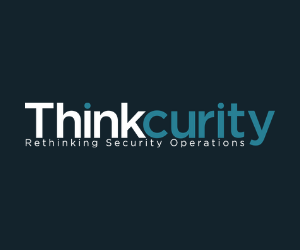Is your company feeling the pinch of a possible recession? Are you looking for ways to grow and increase profits during these challenging times? If so, you are not alone. Many physical security companies are finding ways to adapt and even thrive in today’s economy.
This article will explore some tips for growth strategies during a recession.
Start Your Email Newsletter
Starting an email newsletter is a great way to promote your physical security business during a recession.
As a physical security company, it is essential to keep your customers and clients informed about what is going on with your business. An email newsletter is a terrific way to share news about new products or services you are offering, special promotions or discounts you may be running, company updates, and any other relevant information.
Keeping your customers and clients informed through an email newsletter will help build brand loyalty and keep your business top-of-mind when they need physical security services. Email newsletters are also cost-effective compared to other marketing channels, such as print advertising or television commercials.
Include helpful tips and articles in your newsletter that will make your readers want to keep coming back for more. You can also use your newsletter to upsell your services or promote exclusive deals and discounts.
Streamline Your Business Processes
Take a close look at your business process and see where you can make some cuts.
There are many benefits to streamlining your business during a recession. Every penny counts when times are tough, and budgets are tight. Streamlining your business processes can help you save money by eliminating unnecessary steps and expenses.
It can also help you improve morale within your company. Employees feel appreciated and valued when they see their company is taking steps to improve efficiency and cut costs. When employees feel appreciated and valued, they are more likely to stick around — even during a recession.
You can streamline your process by doing two simple steps:
- Evaluate your current process: The first step to streamlining your business process is evaluating your current process. What steps are necessary? What steps are redundant? What steps could be eliminated? Once you understand your current process, you will see where changes are needed.
- Implement technology: Technology can be a fantastic way to streamline your business process. For example, switch to an online system if you are still using paper forms for customer orders. Not only will this save time (no more printing or faxing forms!), but it will also save money (no more paper or toner costs!).
Conduct Guard and Manager Reviews and Audits
As a physical security company, one of your most important assets is your staff. Make sure every team member is contributing by conducting regular reviews. Reviews help you identify any problem areas in your company so you can make the necessary changes.
In addition, reviews show your staff that you are committed to providing the best possible service. As a result, they can improve morale and increase retention rates. Retention costs are on the rise, and during times of economic downturn, every penny counts. It’s estimated the average cost of a new hire is $1,633.
Finally, guard and manager reviews allow growth during a recession. Making the necessary changes can protect your bottom line and ensure that your company is prepared for the future.
Here is a quick guide for reviews and audits if you do not know where to start:
- Set aside time for the review: You will need at least an hour to review each employee. If possible, schedule the review when you will not be interrupted so that you can give the employee your undivided attention.
- Begin by asking the employee how they feel they are doing in their current role: This will allow them to share any concerns or achievements they may not have otherwise mentioned.
- Take some time to go over the employee’s performance metrics with them: This could include things like attendance, number of incidents reported, customer satisfaction scores, etc.
- Ask the employee for suggestions on how they could improve their performance in their current role: This shows that you are open to feedback and willing to work with them to help them succeed.
- Discuss any training or development opportunities that may be available to the employee: This could include online courses, industry conferences, or shadowing another employee in a different department.
These are just a few of the many things businesses can do to survive a recession and come out stronger on the other side. Adapting and using creative marketing strategies makes it possible to maintain success.





